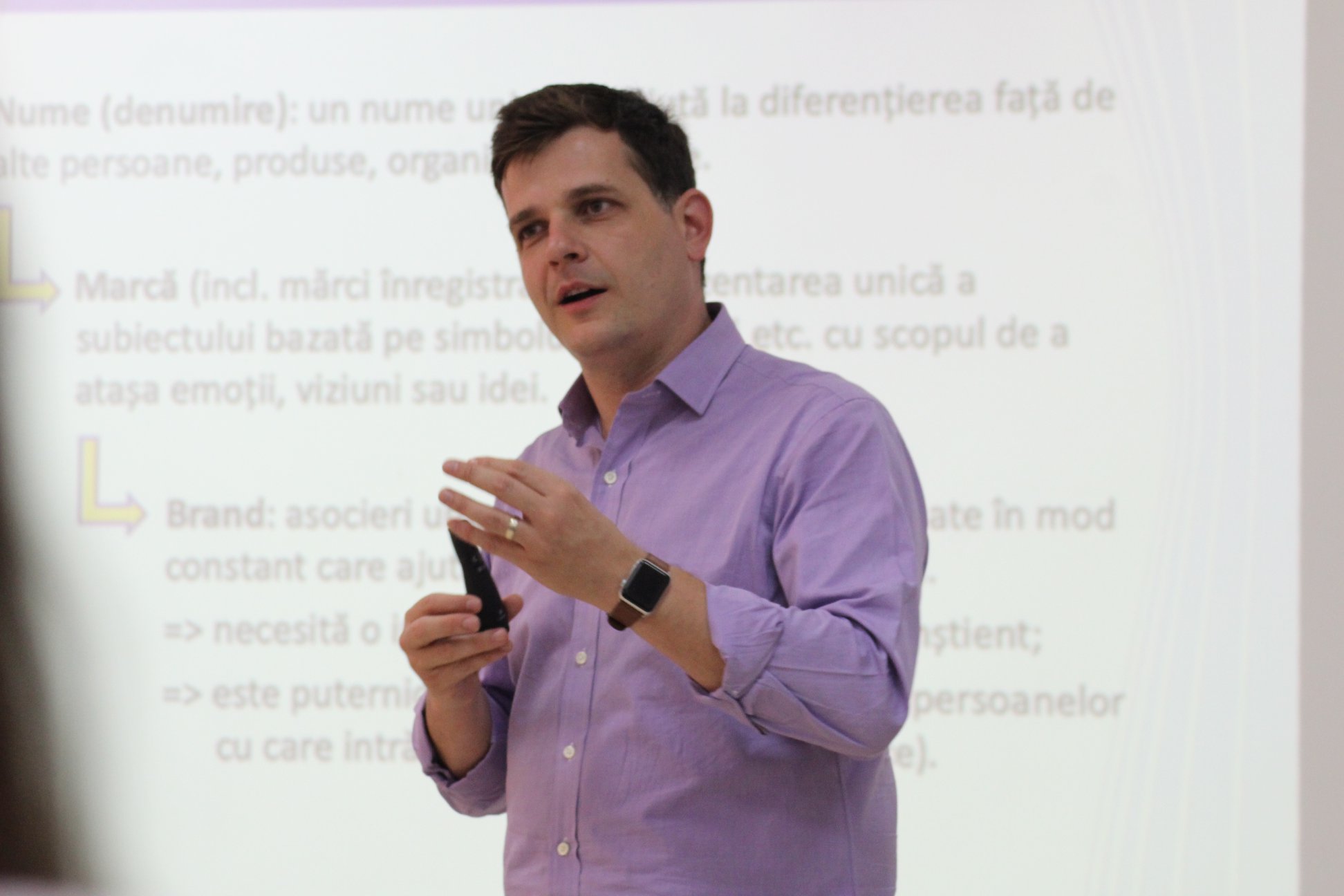A WiFi connection is now a necessity, like bread and water. But in many cases, we are not surfing the web correctly, leading to the destruction of self-esteem.
At the same time, there are still people who very ambitiously and consciously try to live their lives as offline as possible, away from the world of social media and the stream of information that impetuously flows onto the internet — a task that seems to be increasingly difficult to achieve these days. Unintentionally, part of our everyday lives has moved online this year, mainly because of the epidemic situation. Magor Kádár, associate Professor at Babes-Bolyai University and a communication expert, says the next challenge for us is to use this situation wisely.

Some parents have tried to intentionally keep their kids away from the screen, as the current situation seems more and more permanent. What do you think? Is this process irreversible? Will we be forced to spend more and more time in front of the screen from now on?
MK: It has been clear so far that we are becoming more and more digital and are spending more and more time in front of our gadgets. Now, this process has sped up a bit. We did not expect it to speed up so much. The screens are getting smaller and smaller, and they follow us everywhere; we are administrating everything from our phones and watches to digital glasses. The gadgets are becoming more performant, and we are sacrificing more and more of our time for them.
The question here is whether we can adapt or not. This is a challenge now for mankind, a type we have experienced many times before: the environment is changing. But this environment was created by us. This was not provided by nature, but we must learn to live with it. The essential question is: Who will use it to gather information, work, orientate, and ease his everyday life and who will be completely swallowed by the vortex and be online all day long even though this will not bring him physical satisfaction or professional progress (simply a waste of time)?
We can now talk about addiction; we do not wish to slow down, we are used to the speed dictated by the internet, and just as with addiction, the need to be faster and faster in the online world — and also in the offline space — grows. This is primarily due to search engines, which serve us faster and faster. Not so long ago, we had to wait minutes to bring up a page; now this happens in 0.3 seconds. And while this happens, we read four more things.
MK: There is a saying that if you wish to really get to know a person, give him slow internet. I can also lose my temper when pages do not work, even though my generation lived when a computer took 8 minutes to start and there was dial-up internet access. Now it is so fast that we do not really wish to think. Where is a street in the city? If you start to think about it on your own, it turns out you know where it is. What does a word mean or what is this piece of music? You would know if you took the time to think, but instead, you just pull out the application, Shazam, or whatever software you need, and you have the answer right away. So, it isn’t the speed that’s the problem but that this will take over our own functions, which we will need in the future.
Supposedly, and this seems scary to me, our brains are changing. A well-known local photographer, Dorel Găina, mentioned once that after using Instagram filters non-stop, we are searching for the same kinds of colors in the outside world as well; we cannot appreciate natural colors anymore.
MK: It is payback time now. Up until now, we’ve been shaping reality, we created these platforms; now, these are so powerfully present in our lives that they are starting to govern us. There are filters, colors, that we don’t see in reality; there are angles, settings that we do not normally meet in real life. And these are all brought into our lives by these platforms. Because I am spending a lot of time using these platforms, they start to alter my reality. This is also true for our values. Instagrammable. We’ve started to think like this, or there are people who think like this. Check it out, I cooked something that looks so nice, so I have to arrange it nicely on the plate too because it will look cool in an Instagram photo. It has to look good not because the people I cooked for will appreciate it but so that I can show it off. So far, we’ve controlled the online world and its platforms, and now it is starting to backfire.
It looks like offline communication is getting more and more aggressive also because of the flood of comments, where anyone is allowed to write anything without any consequences.
MK: What is happening is that we are losing the imprint of personal contact. The non-verbal environment is much different. There is a tone behind it, gestures, eye contact. A sentence can be interpreted very differently when it is uttered personally. You can try to express your thoughts with emojis, but written language is very different, and it will lose the majority of its characteristics in comparison with the spoken word. It becomes tougher.
The so-called armchair experts are allowed to write anything because there is no penalty. Facebook is gradually becoming a negative forum.
Echo chambers are formed. An echo chamber refers to situations in which beliefs are amplified or reinforced by repeated communication inside a closed system. In an echo chamber, people have access to information that reinforces their existing views without encountering opposing views, so you see a lot of frustration expressed here. For example, if a mayor in Szeklerland writes about one of the successes of the local community, there will be a lot of negative comments.
There is also the problem of algorithms that filter your world. Back in the day, you had the possibility to be informed from many different sources. Opinions were clashing. Internet algorithms now show you only things that you like. Babies, cats, political preferences, etc. After a while, you only get content that only shows you what you like because you’ve knocked out all of your acquaintances that may think otherwise. You sit in your little filter bubble, where everyone thinks the same way, so you have the impression that your vision is correct.
If everyone thinks so, then it must be correct. This is completely wrong,
an error of reasoning. We think we know something because we’ve read so on Facebook, but we know nothing. According to some estimations, 80% of the information on Facebook is false, and there is a part that we cannot even measure. There are also a lot of personal attacks in the online world. I am not capable of attacking one’s opinion or point of view, thus I will attack the person. This is getting worse and worse, people are getting isolated in their world manipulated by algorithms, and completely parallel worlds are starting to develop.

Eventually, we all try to achieve equilibrium in our lives: Can we reach equilibrium between our online and offline lives and thus stay sane? Do you have tips for slowing down, to get a little digital detox? What are your personal tricks?
MK: How do we know if it is an addiction? Can you avoid the screen without making a major effort or not? There should be a certain time frame for consuming the internet. You should definitely not be ALWAYS ON. This is a major problem. Your phone is tweeting, and you immediately check why. If you are working in a call center, this is understandable; otherwise, no. Leave it there, and finish what you’ve started; it is a distraction. You only focus 3 minutes on the new message, but it will take you 10-15 minutes to get focused back on your current task. Leave it there.
Read the news and emails only in the morning or at another predetermined time if you can, or during breaks. There are very few messages that need to be answered right away. There is the tiny little red dot, so I have to see who wrote me. This is marketing. This is completely non-important, meaningless information most of the time. I always have my WhatsApp groups, where there is a lot of talking going on on silent mode. Not the people, but the group.
Scrolling through Facebook gives you a feeling of using a slot machine: Eventually, I will find some cool content. And when I do find something, I will continue to scroll to find more, and so on. Just as the slot machine gives you the message: There is more you can win. One hour goes by, and you do not even notice. You can also educate people around you: If there is nothing urgent going on, a message is enough. Some parents strictly limit their kids’ online time. OK, and then why don’t they do the same for themselves? Being continuously online is just as harmful for adults as it is for kids. These would be some of my personal tips for using the internet wisely.
Featured photo: business2community